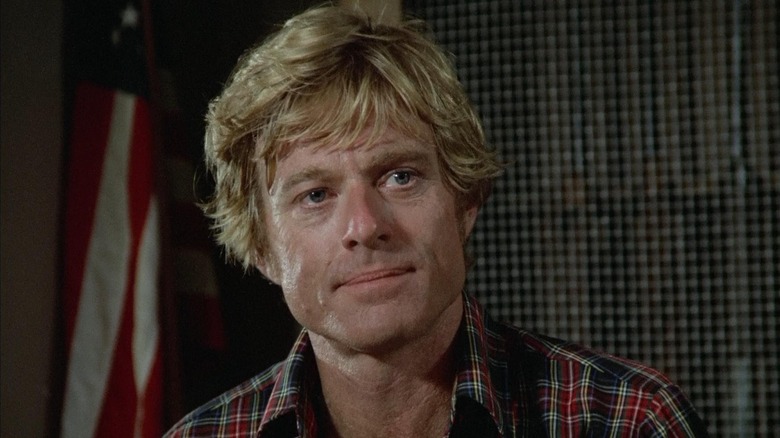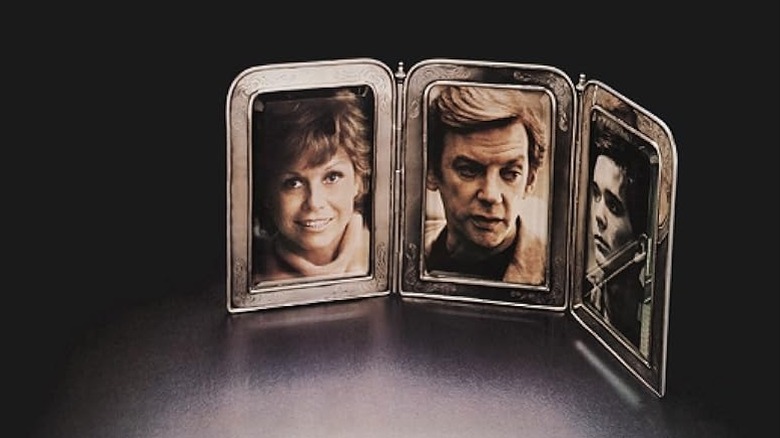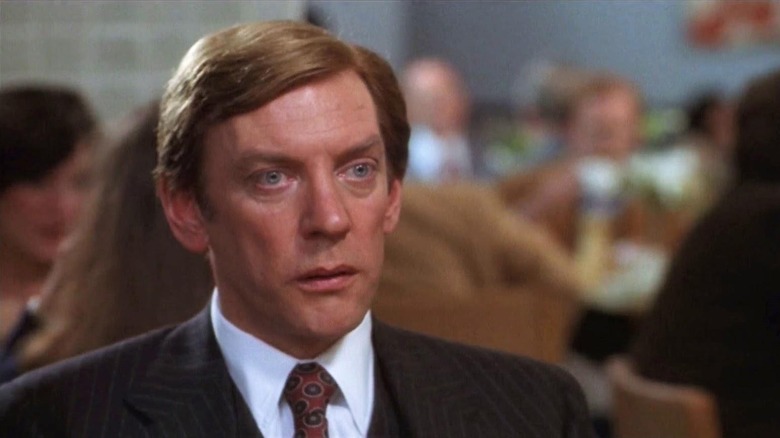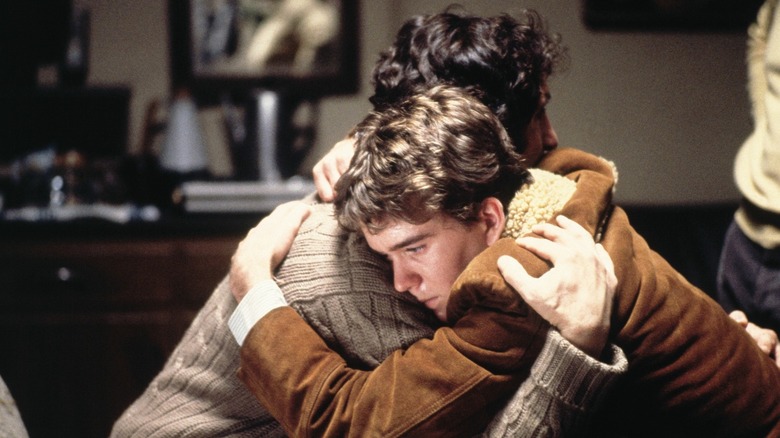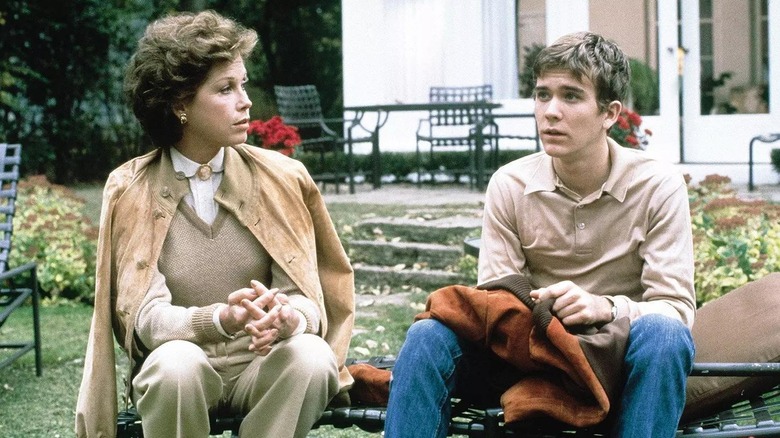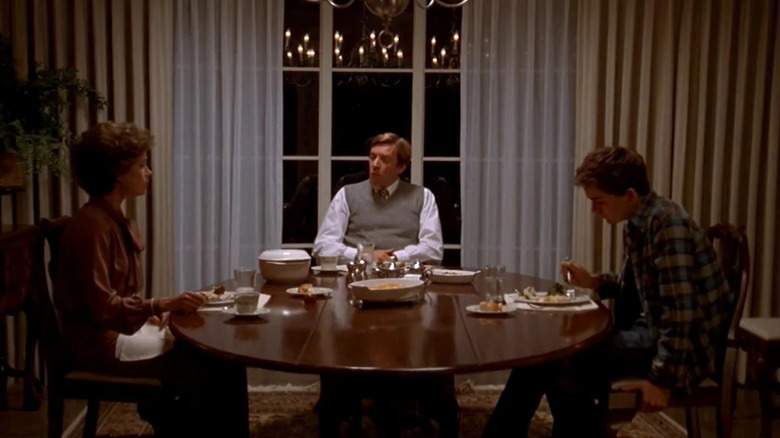45 Years Ago, Robert Redford Directed His First Oscar-Winning, Box Office Smash
(Welcome to Tales from the Box Office, our column that examines box office miracles, disasters, and everything in between, as well as what we can learn from them.)
"I had a very strong idea about stories I wanted to tell about the America I grew up in, and I was inclined to go into what I would call the grey zone of American life." Those are the words of Robert Redford speaking at the Santa Barbara International Film Festival in 2014 about his 1980 classic "Ordinary People."
We lost Redford at the age of 89 recently, with the beloved filmmaker known best for his on-screen roles in everything from "All the President's Men" to "Captain America: The Winter Soldier." As an actor, Redford was unmatched in his abilities. He was nominated for Best Actor at the Oscars for his work in the all-time great crime caper "The Sting." Yet, for all of his remarkable achievements on screen, he never won an Academy Award for his acting.
As a director? That's a different story. A story that started 45 years ago with a devastating, heartfelt, timeless family drama that became a calling card for this master of his craft.
In this week's Tales from the Box Office, in honor of its 45th anniversary and in memory of the late, great Robert Redford, we're looking back at "Ordinary People." We'll go over the genesis of the idea, how it marked a change in Redford's career, what happened when it hit theaters, what happened in the aftermath of its release, and what we can learn from it all these years later. Let's dig in, shall we?
The movie: Ordinary People
The film centers on an upper-middle-class couple, Calvin Jarrett (Donald Sutherland) and Beth Jarrett (Mary Tyler Moore), whose seemingly idyllic existence is shattered by the death of their oldest son. Their younger son Conrad (Timothy Hutton) struggles in the aftermath of his brother's passing, riddled with guilt brought on by the drowning.
Redford was coming off one of the most admirable runs ever for an actor. He had a decade-long run that would be the envy of any Hollywood hopeful, beginning with his role as the Sundance Kid in "Butch Cassidy and the Sundance Kid." That run also includes the likes of "The Candidate," "The Way We Were," "The Sting," "The Great Gatsby," "Three Days of the Condor," "All the President's Men," and "A Bridge Too Far." It's difficult to find another run to rival it.
At that point, Redford decided he wanted to step behind the camera, with "Ordinary People" to be his feature directorial debut. Redford opted not to star in the film, which undoubtedly is something Paramount Pictures would have been open to, if not begged for. Rather, he assembled a hugely impressive ensemble led by Donald Sutherland as the patriarch of the Jarrett family. That role, however, was originally meant for Gene Hackman ("The Conversation").
"I liked the script, but couldn't come to an agreement regarding the — how can I phrase it? — the compensation," Hackman said in reflection in a 1985 interview. "If I thought about it, I suppose I would have to have some regrets. So the thing to do is not to think about it, don't you think?"
Robert Redford steps behind the camera
It became a defining role for Sutherland, one of the best actors to have never been nominated for an Oscar. Upon reflection, it's rather remarkable that he didn't secure one for this movie. More on that later. As for the role of Conrad, it made Timothy Hutton's career. But before Hutton landed the role, plenty of other young upstarts auditioned, including eventual "Back to the Future" star Michael J. Fox.
"It was really nerve-racking, but he made me feel comfortable," Fox said of Redford on "Late Night" in 1985, of his failed audition. "He put his feet on the coffee table and flossed his teeth."
The rest of the cast filled out well, with sitcom legend Mary Tyler Moore playing Beth, and Judd Hirsch ("Taxi") taking on the role of psychiatrist Dr. Tyrone Berger. It perhaps shouldn't come as a surprise that such an accomplished actor put together such an impressive ensemble for his feature debut. Speaking at the SBIFF, Redford explained his inspiration for wanting to make this movie in the first place. As he said:
"One of the things that I had experienced in my life was the difference between those who had something and those that didn't. Because we didn't, but I would engage with people who did, and I would see the difference. I came across so many people that were so focused on things looking right. Their lawns had to be perfectly cut, but they were not willing to look into feelings. They were more complicated. I wanted to tell that story about people that were afraid to look inside themselves to uncover things that might be more unpleasant."
The financial journey
The film cost Paramount $6.2 million. That sounds like nothing by today's standards, but accounting for inflation, that would be roughly a $25 million budget in today's dollars. Redford made the most of it, to be certain, as the film hit theaters with rave reviews from critics. This was long before the Rotten Tomatoes days, when critics in local newspapers had more power of persuasion.
Though Steven Spielberg's "Jaws" pioneered the summer blockbuster in 1975 and completely changed the way Hollywood released movies, it's still important to remember that things were very different in the early 1980s. Particularly for an awards season play like this, it was a slower rollout. More of a marathon than a sprint.
That said, "Ordinary People" hit theaters on the weekend of September 19, 1980, debuting to $170,335 on just six screens. From there, word spread, and it increased its screen count in the coming weeks. Audiences kept turning up, week after week, as buzz continued to build. It made more than half of its total domestic haul in 1981. That gives you some idea of just how long a movie could hang around in those days.
When all was said and done, "Ordinary People" made $54.7 million domestically to go with an estimated $36 million overseas. At that time, the overseas box office wasn't tracked as diligently as it is today, or at least not documented quite so thoroughly in public record. In any event, Redford's feature debut was a smash hit, pulling in a cool $90 million worldwide.
Ordinary People becomes a critical darling
If we adjust for inflation, that $90 million total would be closer to $350 million in today's dollars. A smash by any studio's standards. To make matters even better, "Ordinary People" landed a hugely impressive six Academy Awards, including Best Picture. Sutherland failed to secure a nomination, which, to many, feels like an oversight, even now. Redford was nominated — and won — Best director, his first step up to the plate.
More impressive, he beat out Martin Scorsese ("Raging Bull"), David Lynch ("The Elephant Man"), Richard Rush ("The Stunt Man"), and, long before he became a controversial figure, Roman Polanski ("Tess"). Redford, in his acceptance speech, was sure to thank his actors, being one himself. He said:
"There are a lot of people that I can thank, and I don't want to go on too long, but I couldn't go too much further without expressing what for me is the greatest gratitude. And that keys around the word trust. I really am grateful for the trust that I received from a terrific cast: Mary, Donald, Tim, Judd, and Liz. I love them, and I appreciate their love, too. So thank you all."
"Ordinary People" won a total of four Oscars that year, more than any other movie, with Hutton becoming the youngest actor ever to win Best Supporting Actor. Alvin Sargeant also took home Best Adapted Screenplay. A critical and commercial darling the likes of which any filmmaker or studio can only dream of, not altogether unlike The Coen Brothers' "No Country for Old Men." The Oscar night success drove even more people to the film, with more than $10 million worth of domestic box office coming after the fact, per The New York Times.
Robert Redford had a fantastic career as a director
Redford would naturally return to the screen, starring in movies like "The Natural" and "Out of Africa" as the '80s rolled on. But this marked a turning point for this gem of American cinema, with Redford taking multiple turns behind the camera as his career continued to unfold over the next several decades.
His sophomore effort, 1988's "The Milagro Beanfield War," wasn't a big success, but he sprang right back with 1992's "A River Runs Through It," which starred a young Brad Pitt. Redford's third outing as a director was 1994's "Quiz Show," widely considered to be one of his best movies. Though not a major commercial hit, it earned him another Oscar nomination for Best Director, in addition to a Best Picture nod. He rounded out the '90s with the smash hit "The Horse Whisperer" and the not-so-successful "The Legend of Bagger Vance."
Redford spaced out his directorial efforts in the 2000s, helming "Lions for Lambs" in 2007 and the Lincoln assassination picture "The Conspirator" in 2009. He would direct a total of nine films before hanging it up, with 2012's "The Company You Keep" serving as his final feature behind the camera.
As with any director, his filmography is a mixed bag, but the good far outweighs the bad. Though it's easy to argue he started out on top, perhaps never making a better movie than "Ordinary People."
The lessons contained within
Normally, in this column, I try to bring it all home with some wider lesson about Hollywood at large that can be gleaned from the movie I'm examining. Be it hammering home the cautionary tale that is "Blade Runner 2049" or simply learning to never doubt James Cameron thanks to the success of "Avatar."
I write these words mere days after Redford's passing. It just so happens that the 45th anniversary of one of his greatest contributions to cinema happened to line up with the publication of this week's edition of the column. A bit of cosmic symmetry that allowed me to examine a singular talent after his passing. So, what lessons can be gleaned from "Ordinary People" four and a half decades later?
Not to sound like the old guy on his porch yelling at the clouds, but they just don't make 'em like they used to. In the streaming era, a compelling family drama like this would be here today, gone tomorrow, lucky to make a dime at the box office. Sadly, I don't see that changing, but it's the sort of reasonably budgeted, actor-friendly picture I believe Hollywood should invest in more frequently for the benefit of the medium. The upside potential is still there.
Beyond that, it's hard not to marvel at the talent of the towering figure we lost. There's no replacing Robert Redford. There's no emulating Robert Redford. At the very least, doing so feels like a fool's errand. Mostly, I'm just thankful he gave us everything he gave us in his decades-long career. This movie exists as a monument to the dedicated, beloved filmmaker he was. Perhaps the perfect monument to the man. RIP, good sir.
